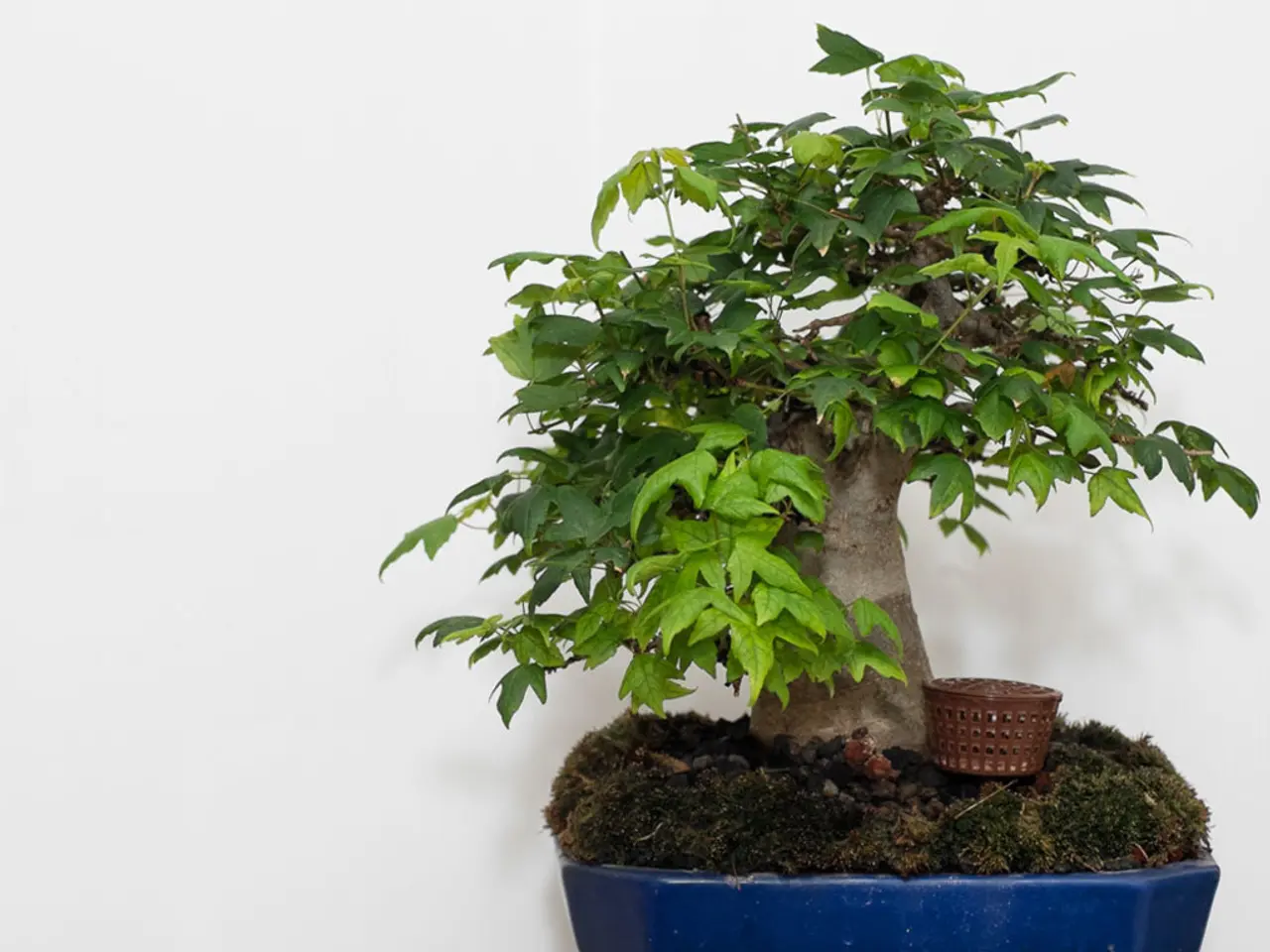Bonsai Soil for Conifers: Examining Drainage and pH Levels
=================================================================================
In the world of bonsai, creating the ideal soil mix is crucial for the health and growth of coniferous trees. Here's a breakdown of the essential ingredients and their roles in promoting a thriving bonsai.
The Foundation of a Healthy Soil Mix
A well-draining, nutrient-rich soil mix is essential for coniferous bonsai. The best mix typically includes pumice, lava rock, calcined clay, and pine bark fines. These components work together to provide excellent drainage, moisture retention without waterlogging, and nutrient availability.
- Lava Rock: Offers outstanding drainage, a key requirement to prevent root rot.
- Pumice: Supplies trace minerals that nourish roots and contributes to moisture retention.
- Calcined Clay: Acts as an acidifier, helping maintain soil chemistry, and holds moisture evenly.
- Pine Bark Fines: Absorbs and slowly releases nutrients to the plant over time.
Balancing Drainage and Water Retention
Other bonsai mixes may substitute or add components like limestone pear rock, but they must maintain a heavy use of porous, mineral-rich, and organic matter to balance drainage and water retention.
The Ideal pH Range
The ideal pH range for coniferous bonsai soil is slightly acidic to neutral, generally around pH 5.5 to 6.5. Calcined clay in the mix helps acidify the soil naturally, which suits conifers that prefer slightly acidic conditions. Soil blends optimized for acid-loving bonsai commonly have a pH near 5.5, supporting healthy growth while maintaining good drainage to prevent stress on roots.
Soil pH Testing
Soil pH testing is a crucial diagnostic tool for coniferous bonsai enthusiasts. Enthusiasts can use pH meters, pH paper, or send soil samples to a laboratory for analysis. Understanding the pH requirements of coniferous bonsai is crucial for crafting a tailored soil environment.
Seasonal Considerations
During winter, coniferous bonsai trees enter dormancy, reducing their nutrient uptake. Fertilizing during this period may cause unnecessary stress. Regular potting soil often lacks the necessary drainage and aeration for coniferous bonsai, leading to root rot and poor health.
Repotting and Adjustments
Coniferous bonsai trees require regular repotting every 2-5 years to maintain peak health and encourage continued growth. Young coniferous bonsai trees require well-draining mixes with a slightly acidic pH for robust growth and development. Adjustments to soil pH can be made by adding ingredients such as peat moss, perlite, or lime.
In conclusion, a harmonious balance of soil components yields a thriving bonsai, a tribute to the art of meticulous cultivation. By understanding the needs of coniferous bonsai and crafting the perfect soil mix, enthusiasts can enjoy the beauty of these miniature trees for years to come.
Engaging in home-and-garden activities can extend beyond indoor plants to involve gardening for coniferous bonsai. The ideal soil mix for these miniature trees, as demonstrated in bonsai cultivation, includes lava rock, pumice, calcined clay, and pine bark fines, ensuring proper drainage, moisture retention, and nutrient availability.
To create a bonsai garden that thrives, one must strike a balance between drainage and water retention by utilizing porous, mineral-rich, and organic matter in the soil mix. This could potentially include other components like limestone pear rock.






